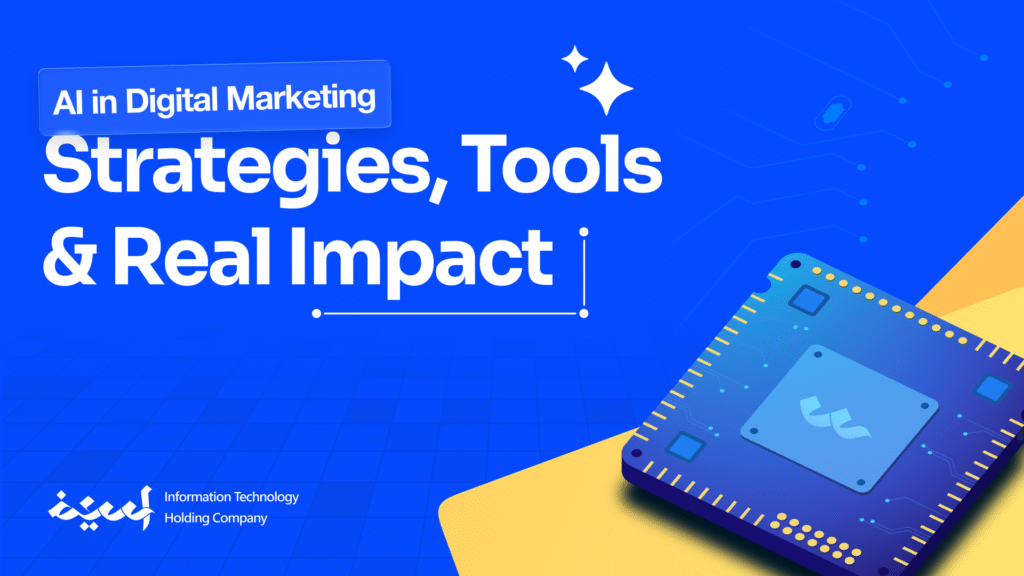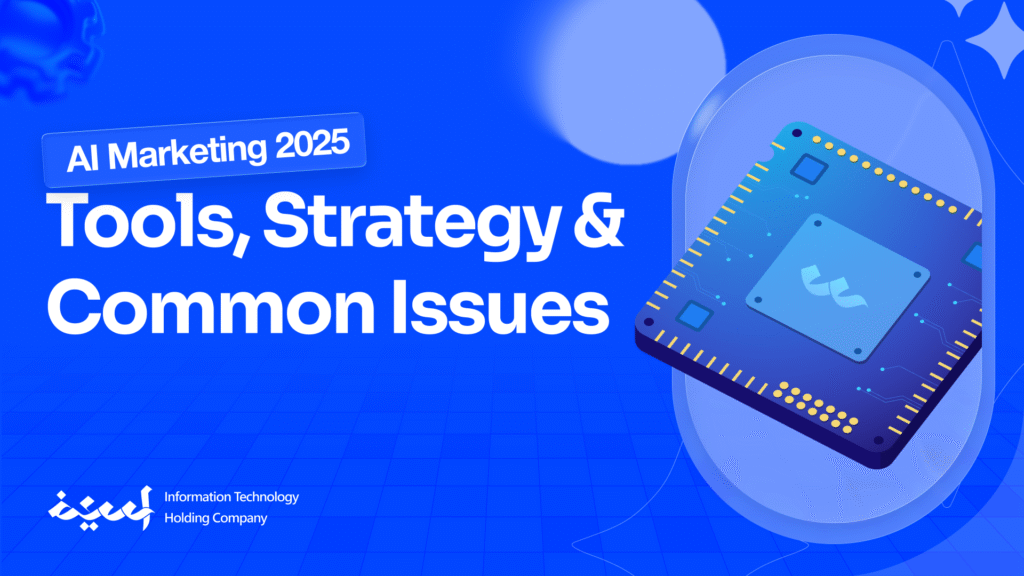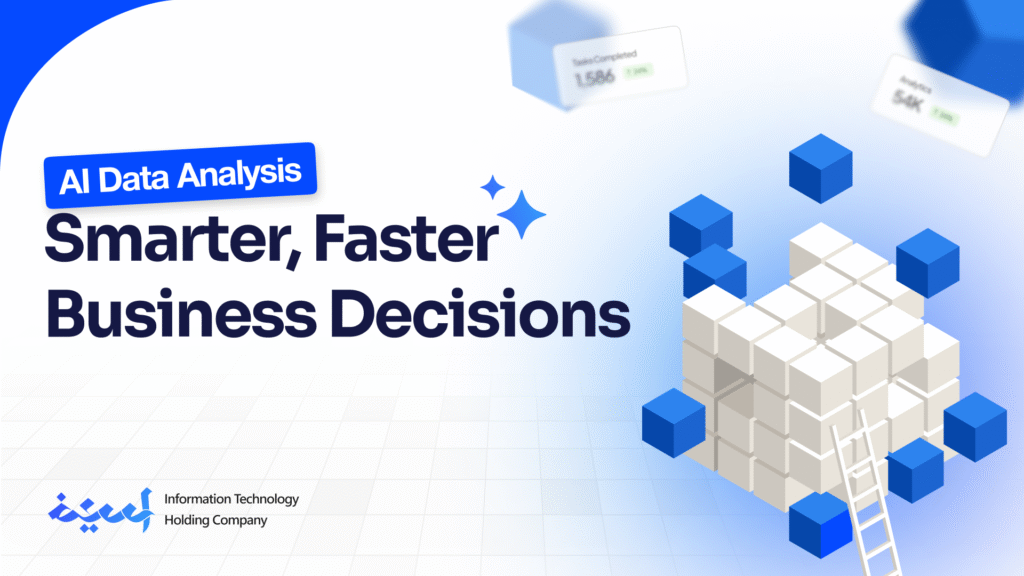- ARTICLE
AI Marketing 2025: Tools, Strategy & Common Issues
Explore how AI in digital marketing boosts efficiency, personalised content, and improves ROI with automation, analytics, and smart strategy.
Explore how AI in digital marketing boosts efficiency, personalised content, and improves ROI with automation, analytics, and smart strategy.
INTRODUCTION
AI marketing is rapidly reshaping the way brands approach digital strategies, bringing new levels of personalization, automation, predictive analytics, and data intelligence to campaigns.
At Aseef, we’ve supported clients across education, healthcare, and B2B sectors in leveraging AI marketing platforms to improve targeting, optimize content, and increase ROI. But these gains don’t come without challenges. We’ve seen how poor data quality, tool misalignment, and lack of strategy can hinder even well-funded AI efforts.
As adoption grows, aligning AI with clear marketing goals, ethical standards, and ongoing human oversight is essential.

What is AI Marketing?
Understanding the Fundamentals of AI Marketing
AI marketing refers to the application of artificial intelligence technologies such as machine learning (ML), natural language processing (NLP), and predictive analytics to automate, optimize, and personalize marketing.
These technologies enable companies to:
- Understand customer behaviour more deeply.
- Segment audiences with greater accuracy.
- Deliver personalized content in real time.
- Make faster, data-driven campaign decisions.
According to Aseef, AI marketing goes beyond basic automation. Unlike fixed rule-based tools, AI improves and learns over time, making campaigns more effective. But it isn’t something you can set up once and leave alone. We suggest using AI to support your marketing strategy not to replace human creativity and decision-making.

What Are the Most Effective AI Marketing Applications?
Practical Ways Businesses Use AI Across the Marketing Funnel
AI is being used at every step of the marketing funnel, from creating awareness to driving conversions. We have helped clients apply AI solutions that address specific marketing challenges instead of just following trends. The impact of AI on marketing is evident across channels, transforming how brands connect with audiences.
AI-Generated Content & Design:
Canva AI and Jasper are tools that quickly generate ad copy, social media posts, and images based on brand tone.
Smart Ad Targeting:
AI delivers ads to the most relevant audiences using predictive analytics, which increases visibility and lowers cost per click.
Personalized Email Campaigns:
Machine learning adjusts content based on user behaviour, including timing, message type, and product interest.
Chatbots for Lead Qualification:
We have set up AI chatbots for clients to engage visitors 24/7, answer questions, and automatically capture qualified leads.
Predictive Lead Scoring:
Computers find the top-converting leads so the sales team can focus their efforts where needed.
Customer Journey Mapping:
Platforms look at users’ past behaviour to recommend the next best action, such as a reminder or upsell opportunity.

How to Design an AI Marketing Strategy?
A Step-by-Step Framework for Building an Effective AI Marketing Strategy
Using AI in marketing is not just about choosing the latest tools. It’s about aligning technology with your business goals, customers, and brand voice. We focus on a strategy first approach that makes sure AI brings real value, not just adds automation.
Aseef’s Framework for AI Marketing Strategy:
Define Clear Business Objectives
Start with what matters to you. Do you need to increase conversions, improve customer retention, or lower acquisition costs? AI should support you, not hinder you.
Audit Your Existing Marketing Stack
We review your current tools, data sources, and team processes to identify gaps and opportunities where AI can add real value, like content automation or real time personalization.
Choose the Appropriate AI Tools
Based on your goals, we recommend tools that fit well into your systems and have been proven in your industry. A one-size-fits-all solution usually doesn’t work; specific features are more important.
Develop Pilot Campaigns
Before full rollout, we help clients test AI capabilities through pilot campaigns to evaluate performance and gather insights.
Train Teams and Establish Guidelines
AI works best when your marketers know how to use it. We help your marketers adopt tools and set rules for ethical use, oversight, and review.
Monitor, Optimize, and Scale
Once the strategy is live, we regularly check performance, improve the process, and scale what works. This ensures AI keeps up with your marketing growth, and our guide on AI in Business shows how these strategies connect to broader organizational goals
What Are the Key Benefits of AI in Marketing for Smarter Business Growth?
Driving ROI and Efficiency with AI Marketing
AI provides strong benefits for marketers who want to scale faster while working smarter. At Aseef, we’ve helped Riyadh-based and global businesses use AI marketing tools to enhance targeting, streamline workflows, and boost ROI without increasing staff size.
Some of the major advantages include:
Improved ROI
AI identifies high potential prospects and optimizes advertising spend in real time, keeping unnecessary budget from being spent.
Quicker Decision
Since AI processes data in real time, teams can react immediately to customer behaviour and campaign results.
Personalized Experience
AI provides content and messaging that is personalized to every individual, which drives engagement and conversion.
Scalability
As your business grows, AI can handle more campaigns and customer interactions without sacrificing efficiency.
Smarter Use of Time:
AI takes over repetitive tasks like segmentation or scheduling liberating marketers to focus on creative strategy.
What Are the Best Practices for Using AI in Marketing?
Core Principles for Applying AI in Marketing
Applying AI to marketing successfully involves more than simply installing software—it involves intelligent planning, ethical implementation, and ongoing human touch.
Here are some of the most important best practices to adopt
Don’t Over Automate
AI can automate tasks, but overdoing it can hurt authenticity. For instance, we assisted a B2B customer in modifying overly robotic email sequences to sound more human leading to increased engagement.
Pair AI with Human Judgment
Always double-check AI generated material and choices. We recommend using AI for suggestions, not conclusions—particularly in customer communications or brand positioning.
Personalize Responsibly
Apply AI to serve relevant experiences, but respect privacy. Tailor content according to behavior, not personal or sensitive information. This earns confidence without overstepping.
Maintain Data Accuracy and Integration
AI is only as good as the information upon which it runs. We’ve worked with customers to cleanse CRMs, reduce analytics platforms, and create more accurate customer profiles before adding layers of AI tools.
Abide by Privacy and Compliance Regulations
Whether it is GDPR, CCPA, or Saudi Arabian data laws, AI marketing must stay compliant. We help our clients select tools that maintain data security and transparency.
Test, Measure, Improve
AI is not “set and forget.” We create performance loops in all AI powered campaigns monitoring results and making periodic tweaks for improved results.
We think the best AI marketing is ethical, educated, and customized to your audience not merely automated for speed. These efforts ensure long term achievement and brand confidence.
What Common AI Marketing Challenges Could Hold Your Strategy Back?
Common Challenges in AI Marketing and How to Overcome Them
1.Poor Data Quality and Integration
AI models are as good as the data they’re trained on. Poor, stale, or isolated data can lead to off target targeting and weak campaign performance.
Solution:
We help customers clean up and harmonize their data reviewing CRM fields, aligning analytics, and creating a foundation for AI inputs.
2. Over Automation Killing Authenticity
AI can speed up it can become robotic and impersonal if overused.
Solution:
Combine automation with human guidance. We tailor chatbot scripts and email journeys at Aseef so tone aligns with your brand voice.
3.Alignment Between Tools and Strategy
Businesses start with AI tools without defining objectives leading to waste in spend and frustration.
Solution:
We guide teams to flip the process: set goals first, then select AI solutions to solve actual marketing issues.
4.Privacy and Compliance Risks
Marketing with AI often involves collecting user information. In the absence of governance, this can lead to compliance issues.
Solution:
We ensure that every AI process is GDPR, CCPA, and local data privacy regulation compliant, building trust with transparency and consent based data utilization.
5.Lack of Internal Alignment and Training
Teams are not even aware how to utilize or have faith in using AI tools, so there is poor adoption and mixed performance.
Solution:
Aseef provides strategic onboarding and training to synchronize marketing and sales forces for effective rollout and utilization.
Which AI Marketing Tools Will Be Most Valuable in 2025?
Here are the top categories of AI-powered solutions shaping campaigns in 2025
AI Content Creation & Copywriting
Employ these tools to generate a lot of high-converting content:
- Jasper is a blog, email, and landing page AI writing assistant. It’s most commonly used for generating high converting long form content at scale.
- Copy.ai assists marketers in generating ad copy, product descriptions, and short form text in seconds. It’s perfect for ideation and accelerating content generation.
- Writesonic is ideal for long-form articles and multilingual content. It supports more than 25 languages and is perfect for businesses that focus on global markets.
- Surfer SEO integrates AI writing with on-page search engine optimization. It informs writers with keyword and structure suggestions to boost search rankings..
AI-Driven Design & Visual Content
Streamline design workflows and create engaging visuals:
- Canva AI features Magic Write and text-to-image capabilities that make design quick and easy. It allows even those not experienced in design to produce top-notch visuals within minutes.
- Adobe Sensei adds intelligence to design workflows with image tagging, auto-editing, and layout suggestions. It enables creative teams to save time on repetitive tasks.
- Designs.ai automates video, logo, and banner creation. It’s a favourite among start-ups and agencies that require scalable, fast-turnaround graphics.
Customer Engagement & Personalization
Provide users with relevant experiences based on behaviour and preferences:
- Insider powers personalized web and mobile experiences. Through real-time segmentation, it enables brands to enrich customer journeys effectively.
- HubSpot AI Tools drive email personalization, lead scoring, and chat automation. Merged with HubSpot’s CRM, it makes smarter, data driven targeting.
- Drift is a B2B lead generation conversational AI. It converses with website visitors in real-time, qualifying leads quicker and converting better.
- Tidio offers AI chatbots for websites and online stores. It assists in answering customer questions immediately, driving engagement and sales.
Marketing Automation & Campaign Management
Streamline mundane tasks and improve campaign performance:
- Active Campaign is an AI-based email automation and CRM tool. It’s particularly ideal for small businesses looking to customize campaigns at scale.
- Zapier + OpenAI enables businesses to automate workflows in 5,000+ apps. It eliminates repetitive work, freeing up teams’ precious time and energy.
- Mailchimp AI recommends content, anticipates audiences, and suggests send times. It’s a favourite among SMBs to scale their email marketing efficiently.
- Oracle Eloqua is a marketing automation platform at the enterprise level with AI. It has enhanced segmentation and multi-channel campaign management.
Analytics, Insights & Predictive Intelligence
Make data-driven decisions from real-time insights and predictive analytics:
- PaveAI translates Google Analytics data into readable, easy-to-understand reports. It enables marketers to turn raw metrics into actionable recommendations.
- Brandwatch (formerly Crimson Hexagon) tracks social media and brand sentiment. It enables brands to monitor conversations and reputation more effectively.
- Neural love utilizes AI to scan customer information and identify latent patterns. Its behavioural trend insights assist marketers in making better choices.
- Pecan AI is a no-code predictive tool for loss, sales, and customer behaviour. It enables marketers to predict results without requiring data science knowledge.
All-in-One AI Marketing Platforms
For teams that want to scale AI across their entire marketing pipeline
- Salesforce Einstein is an integrated AI platform for customer experiences, predictions, and automation. It’s used extensively in large businesses for sophisticated CRM intelligence.
2. Zoho Marketing Plus is a cost-effective AI marketing platform for SMEs. It combines email, social, and analytics tools into one platform.
3. Blaze.ai is a centralized content strategy and performance optimization platform. It assists teams in aligning creativity with analytics for optimal performance.
4. Persado applies AI to optimize messaging for emotional resonance. Through the use of natural language generation, it maximizes engagement and conversions.
Conclusion
AI is revolutionizing how marketing operates today but getting the most out of it requires looking beyond tools and thinking about strategy. From more intelligent targeting to automating content, the true benefit of AI is when it’s joined with your objectives and backed by clean data, clear flows, and human imagination.
.As your company expands, AI can assist you in scaling effectively, but it needs to be done with caution, openness, and ongoing improvement.
Blog Summary
AI is transforming marketing through automation, personalization, and data-driven intelligence. At Aseef, we help clients across sectors like education, healthcare, and B2B use AI to improve targeting, content, and ROI. However, success with AI depends on clear goals, quality data, and ethical oversight.
AI marketing uses technologies like machine learning, NLP, and predictive analytics to automate, optimize, and personalize marketing efforts. It helps understand customer behavior, segment audiences, and make faster, smarter decisions. Unlike static automation, AI evolves over time—requiring ongoing human guidance and strategy.
- Improved ROI by optimizing spend and identifying high-potential leads
- Real-time decisions using live customer behavior data
- Personalized experiences tailored to individuals
- Scalability without increasing team size
- AI Content Creation: Jasper, Canva AI generate on-brand visuals and copy
- Ad Targeting: Predictive analytics deliver smarter ads
- Email Personalization: ML optimizes timing and messaging
- Chatbots: 24/7 lead qualification and engagement
- Predictive Lead Scoring: Focus sales efforts on high-intent users
- Set Business Goals – tie AI efforts to measurable outcomes
- Audit Existing Stack – find gaps where AI adds value
- Choose the Right Tools – align platforms to industry and needs
- Start with Pilot Campaigns – test before scaling
- Train Teams – ensure marketers understand tool usage and ethics
Avoid Over-Automation – keep messaging human
Pair AI with Human Insight – use AI for suggestions, not final decisions
Respect Privacy – personalize responsibly and transparently
Ensure Data Accuracy – clean and align your data first
Stay Compliant – adhere to GDPR, CCPA, and local laws
- Poor Data Quality – leads to inaccurate results → Clean and align data before AI use
- Over-Automation – risks robotic messaging → Maintain human tone
- Tool-Strategy Misalignment – wastes budget → Start with goals, not tools
- Privacy Risks – can erode trust → Use consent-based, compliant AI tools
- Content & Copywriting
Jasper, Copy.ai, Writesonic, Surfer SEO
- Design & Visuals
Canva AI, Adobe Sensei, Designs.ai
- Customer Engagement & Personalization
Insider, HubSpot AI, Drift, Tidio
- Automation & Campaigns
ActiveCampaign, Zapier + OpenAI, Mailchimp AI, Oracle Eloqua
- Analytics & Insights
PaveAI, Brandwatch, Neural.love, Pecan AI
- All-in-One AI Marketing Platforms
Salesforce Einstein, Zoho Marketing Plus, Blaze.ai, Persado
AI is redefining how marketing operates—but it’s not about chasing trends. Real results come when AI tools are aligned with strategy, supported by clean data, and guided by human creativity. With a thoughtful, ethical, and data-driven approach, AI can scale campaigns and improve outcomes without disrupting your workflow.
Frequently Asked Questions (FAQs)
1. Is AI marketing only for large enterprises or can small businesses use it too?
AI tools are now scalable and affordable. From startups to SMEs, businesses of any size can use AI for smarter targeting, content creation, and campaign optimization—without needing a full data science team.
2. How can I know if my current marketing setup is ready for AI integration?
Start with an audit of your current stack—tools, data, and workflows. If you have structured customer data, digital campaigns, and repeatable tasks, you’re likely ready to start integrating AI into specific areas.
3. What marketing tasks can be improved most quickly using AI?
Content generation, ad targeting, lead scoring, and personalization are quick wins. Tools like Jasper, Canva AI, and HubSpot AI can be implemented fast to automate content and improve campaign performance.
4. How does Aseef help businesses implement AI marketing without disrupting existing systems?
We begin with small pilot campaigns and integrate AI tools gradually. Aseef ensures smooth integration with your CRM, automation tools, and ad platforms—without halting ongoing operations.
5. Can Aseef help train our marketing team to effectively use AI tools?
Yes. We provide tailored training, onboarding documentation, and ethical AI use guidelines—ensuring your team can confidently adopt and maximize AI marketing tools.
Publication Date
Category
- Artificial Intelligence
Table of Contents
Let’s start a project today
Start your project with us and unlock innovative solutions tailored to your needs. Our team is ready to bring your ideas to life and deliver exceptional results.
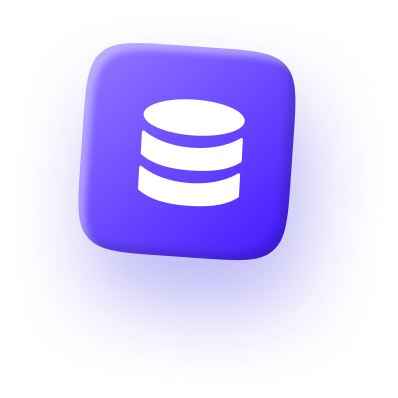

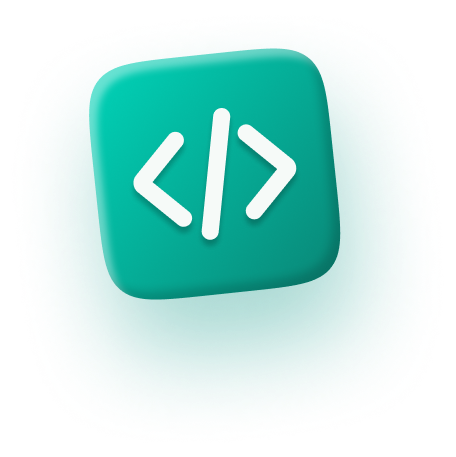
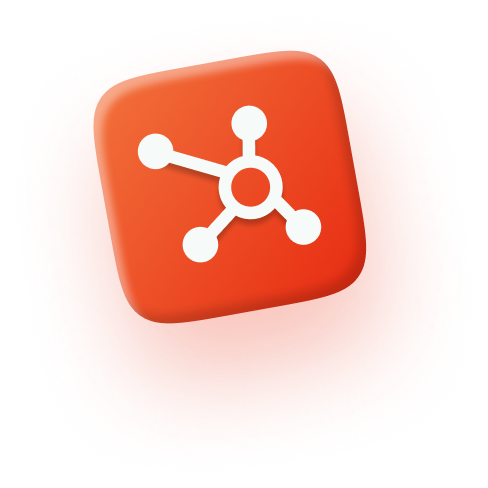
Let's start a project today
Start your project with us and unlock innovative solutions tailored to your needs. Our team is ready to bring your ideas to life and deliver exceptional results.
Request Solution






